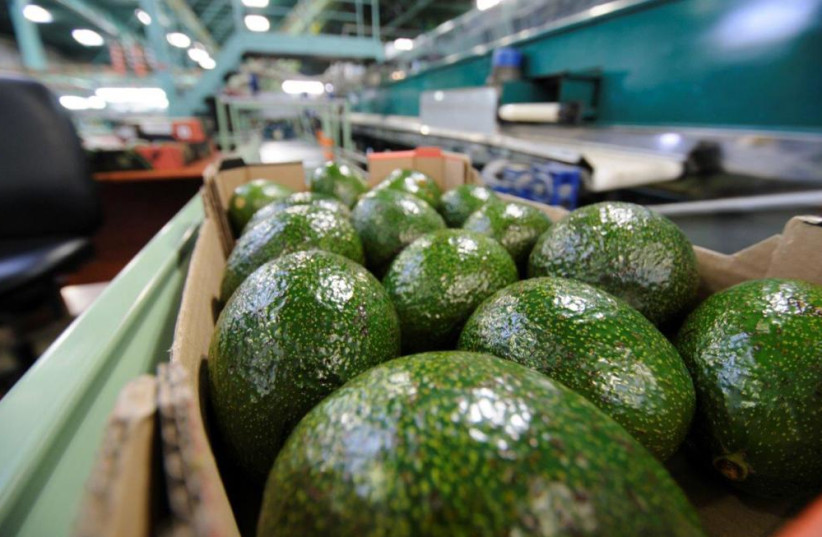[ad_1]
According to experts in the field, diet is the biggest risk factor for the coronavirus that not enough people are talking about.
“We have two epidemics: obesity and COVID-19,” said Dr. Mariela Glandt, a trained endocrinologist and nutritionist from Harvard University and Columbia University, who now lives in Israel and runs a clinic for diabetics in Ramat Aviv.
cnxps.cmd.push (function () {cnxps ({playerId: ’36af7c51-0caf-4741-9824-2c941fc6c17b’}). render (‘4c4d856e0e6f4e3d808bbc1715e132f6’);});
if (window.location.pathname.indexOf (“656089”)! = -1) {document.getElementsByClassName (“divConnatix”)[0].style.display = “none”;} else if (window.location.pathname.indexOf (“/ israel-news /”)! = -1) {document.getElementsByClassName (“divConnatix”)[0].style.display = “none”; var script = document.createElement (‘script’); script.src = “https://player.anyclip.com/anyclip-widget/lre-widget/prod/v1/src/lre.js”; script.setAttribute (‘pubname’, ‘jpostcom’); script.setAttribute (‘Widgetname’, ‘0011r00001lcD1i_12258’); document.getElementsByClassName (‘divAnyClip’)[0].appendChild (script);}
She said, “As long as the pandemic continues, everyone who cares about their health should do everything they can to improve the risk factors they control” – including diet.
“A poor diet like the modern American diet of junk food, highly processed starches, and cheap fats causes metabolic disorders that, when combined with the coronavirus, can be a disaster,” Glandt wrote in an e-book entitled How to Eat in the Time of COVID-19, which she recently released with Ross Wollen and Jessica Apple.
The book was published by ASweetLife, which describes itself as “the Internet’s trusted authority on the art of living well with diabetes”.
Severe COVID-19 – hospitalization, intensive care treatment, mechanical ventilation, and even death – has been linked to higher body mass index, the Centers for Disease Control said.
Obesity in particular, defined by BMI, increases the likelihood of hospitalization by 76%, as Boaz showed in a paper that will be published soon but has not yet been peer-reviewed. She said the chances of admission to the intensive care unit increased by 67%, mechanical ventilation increased 119%, and death increased 37% – all according to recent studies.
In addition, a study published late last month in the peer-reviewed journal PLOS One showed that people with high sugar levels but not diagnosed with diabetes are also at risk for severe COVID-19 morbidity or mortality.
Researchers from the Hebrew University of Jerusalem, Meuhedet Health Services, Jerusalem College of Technology and Hadassah-University Medical Center conducted a retrospective study among all people over the age of 18 who were insured with Meuhedet and who contracted the virus between March and October 2020 .
Of the 37,121 people who tested positive, 707 had a serious illness, of which 244 died.
THE NORMAL ADULT blood sugar level after eight hours of fasting is 70 to 100 milligrams per deciliter (mg / dL) of blood sugar. Patients on 105-125 mg / dl had a 1.5 times higher risk of severe COVID than patients with a sugar below 105. Patients with between 125-140 mg / dl developed complications twice as often.
“The aim of the study was to identify risk factors for severe coronavirus disease that can be treated in advance,” explained Dr. Michal Shauly-Aharonov from the Jerusalem College of Technology.
Obesity, high blood pressure, diabetes, and many forms of cardiovascular disease are symptoms of an underlying condition called insulin resistance, Glandt wrote in her book.
“Insulin is the hormone that enables your body to use the glucose in the food you eat. Usually this is a healthy and natural process – insulin levels go up when you eat and go down to very low levels between meals, â€explains Glandt. “Insulin is a storage and growth hormone, and it’s important to have a balance between high and low levels.
“But when you eat a diet full of sweets and starches, your insulin production can get out of hand. Eventually, your cells become resistant to insulin, which weakens its effects, which only causes your body to produce more of it as your body has difficulty moving glucose [sugar] out of your blood and into your cells, â€she said.
High sugar levels mean that there is no more room in a person’s cells to store sugar and the sugar stays in the blood. When a person stops bringing sugar into their body, their sugar levels go down.
Through her own clinic, she has managed to free 97% of customers from insulin through diet management. The average customer loses eight kg. (18 lbs.) For the first six months. In addition, around 65% of clients normalize their blood sugar to the point where they are no longer considered diabetic.
She advocates the ketogenic diet, which involves avoiding all seed oils like canola, soy, sunflower, and corn; Avoiding all sugars; and reduce complex carbohydrates to a minimum.
Boaz, on the other hand, has said that to get the right balance, a modified Mediterranean diet that includes fish, nuts, hummus, tahini, and bean jam is high in fruits and vegetables, whole grains and olive oil, and low-processed foods.
“This particular pandemic has shown the impact obesity can have on the immune system,” Boaz said.
She stressed that public health policies should focus on improving the quality of food, especially among young people who are much more likely to adopt health promoting practices when educated from an early age.
“Logic would tell you,” said Boaz, “having adequate nutrition and a healthy diet is always to your advantage.”
[ad_2]

